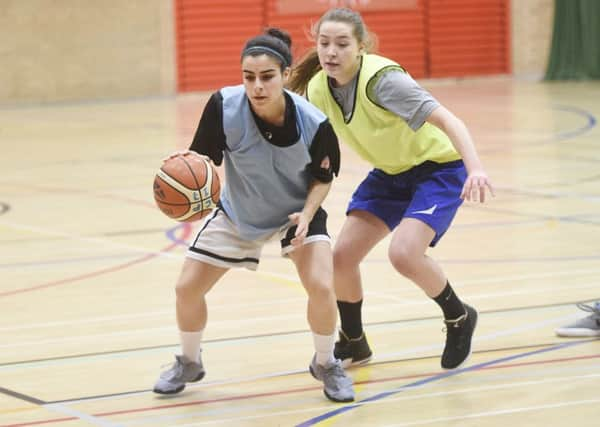Tough love paying off for cup finalists Caledonia Pride


“We do tend to be more direct although if you went to some people in Holland, they’d might say I’m on the soft side. I’m sure that’s not what the players here would say. But it certainly something that’s instilled in us.”
A useful trait, he says, in nurturing talent, no matter the sport. Sugar-coating may inflate young egos and keep parents on-side but it is a diet that has a tendency to hinder rather than help. Hence, Sengers acknowledges, there has been a line of tough love in constructing the Pride – Scotland’s lone team in the Women’s British Basketball League – from scratch over the past 18 months.
Advertisement
Hide AdAdvertisement
Hide AdEvidence that the formula is working will be presented this afternoon when the Edinburgh-based outfit bid for a first piece of silverware, facing Nottingham Wildcats in the televised WBBL Cup final in front of a 12,000 crowd at ArenaBirmingham.
The squad, compromised of two American imports and a youthful crop of Scots, took 15 attempts before a maiden victory in its debut campaign but the improvements have been exponential. Yet, Sengers says, where the domestic system differs most from his native land is the age at which coaches can dive in and truly make their mark.
In the Netherlands, ten-year-olds are instilled with formal instruction. Here, much later is the form. “It helps tremendously,” he offers. “Because if you get players whose fundamentals are already up to a certain level, you can just take off. They’re used to getting feedback, taking feedback. Their performance behaviour is already in place. That all takes up so much time if you’re putting it in later. As with everything, if you learn something when you’re young, it’s soaked up.”
Hence, there has been more teaching in his present role as both Pride coach and Scottish performance director than he’d like. “We’re trying to create a programme at a Scotland level where age-groups play similar styles, where they all understand nutrition, about discipline, about taking care of your body. It’s not something you want to teach someone at 20. They should just be doing these things. But it will take some time.”
Having a semi-professional side, featuring in a national league, with the consequent opportunities to practice and compete, has been a boon. Yet the Pride’s future is uncertain beyond this season when what amounted to a start-up grant from Sportscotland runs out. With rapid growth, and the largest crowds in the WBBL, it would seem a tragedy if it were snuffed out so soon.
“If we can do continue this, it would be so beneficial,” Sengers says.
“I know people are working hard to make that happen. But sure, if you win a cup, it can only help.”